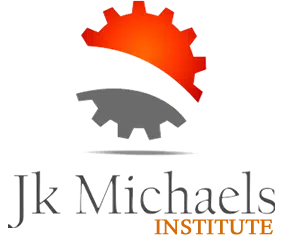Project Finance & PPP training will generally prepare the public and private-sector personnel to take on more significant roles and responsibilities in project finance in PPPs. The success of Public-Private Partnerships (PPPs) is influenced by various factors, the most important of which is project financing. In most cases, the private sector partner contributes cash, although special initiatives are co-funded by both parties.
Project finance is the long-term financing of a public infrastructure project or service using a non-recourse or limited recourse financing framework. The equity and debt used to fund the project are returned from the project’s cash flow. This increasingly crucial financial strategy relies on a project’s non-recourse, risk-adjusted cash flows rather than a sponsor’s balance sheet or corporate guarantee to sustain investment.
Not all projects are eligible for project financing. Project finance is a highly specialised financial tool that necessitates a deep understanding of markets, technology, sponsors, off-takers, contracts, operators, and economic architecture. Several industries, focusing on one of the most important and prominent, will be used to show project-financing principles. Finance positions are often rather abstract. You spend most of your day combing through spreadsheets or communicating remotely with clients or other stakeholders. That’s just the way things are. However, Project Finance is unusual because you get to work on actual projects. Massive airports, seaports, commercial buildings, toll motorways, renewable energy facilities, and other projects may be visible before you. It’s genuine.
The lender has the authority to regulate project governance and performance with project finance, encouraging cash flow dependability. Furthermore, the technique allows sponsors to raise third-party financing while avoiding direct accountability to lenders.
The willingness of prospective lenders to finance the project is a significant consideration. As a result, project finance is often handled without contact with a previously operating company, i.e. a unique purpose vehicle company is founded to carry out the project until completion.
JK Michaels Institute’s sole goal is to see the project through to completion, controlling and regulating all associated components. In most cases, this corporation has limited liability and is not linked to or depicted as a reference to a parent firm. Because related projects are extensive and span years, project finance agreements are frequently long-term.
The involvement of numerous players, such as lenders, stakeholders, contractors, grantors, and so on, is a common feature of this arrangement or agreement. Furthermore, the financing arrangement is non-recourse, which means that the borrower or borrower’s shareholder has no personal duty in the event of monetary default.
However, if the lender is not entirely confident of the project’s ability to repay the entire loan, the lender may extend the liability to the borrower in a limited capacity. In such cases, documentation is complicated, and risk identification and allocation are critical and prioritised.
This JK Michaels Institute training course will provide the necessary project finance, PPP expertise, and information. It will also provide the required confidence, skill, and exposure to participate in project financing at any stage, including negotiations, contract preparations, etc.
This course explains some fundamental aspects of project financing. It also highlights several ways and concepts for funding PPP projects.
It explains the critical funding sources and describes some of the advantages and disadvantages of project financing. This appendix should be studied in combination because it does not cover all the complicated and frequently project-specific concerns related to PPP funding models.
Project finance is acquiring debt funding from lending institutions in PPP projects. Project finance is a type of financing in which lending institutions look solely at the predicted project income stream as the only way of paying interest and repaying outstanding debt. Therefore, lending institutions do not focus on the firm’s asset and liabilities portfolios when evaluating whether to extend a loan. Instead, they regard a project as a separate company with its project assets, project-related contracts, and project cash flow that is substantially separate from the organisation sponsoring the project. As a result, project finance is also known as “limited recourse” or “non-recourse” financing since lenders often do not have recourse to the entities (sponsors and shareholders) who began the project if the project has problems fulfilling the loan.
This course will give a fundamental overview of public-private partnerships and project financing, including academic theory and a technical assessment of some of the primary methodologies utilised in the delivery and administration of transportation infrastructure projects. The seminar will include many case studies from actual transportation projects and examples of processes and management procedures operated by agencies, financial institutions, and infrastructure businesses delivering projects using the project finance strategy. Delegates will also learn about project financial modelling, including the inputs and risks involved. Although all stakeholder viewpoints are included in the course material, the course focuses on the public or owner perspective. The training is suited for delegates new to project financing and public-private partnerships.
PROJECT FINANCE & PPP COURSE LEARNING OUTCOME
The learning outcome of this course is to acquire:
- In-depth understanding of project finance and PPP theories and principles
- The necessary self-assurance to take on more responsibility and play a significant role in project finance setup and maintenance during a project
- Appropriate experience and exposure to reduce most, if not all, project finance risks.
- The confidence to persuade investors to contribute capital and finance public-sector enterprises
- The requisite expertise and knowledge to evaluate project performance under the project finance agreement, implement next steps to improve performance, anticipate risk, and respond early.
- Skills, knowledge, and information to develop rules and contracts based on this structure, with borrowers having little or no liability.
PERSONAL IMPACT
- It increased knowledge and comprehension of project finance principles, theories, and concepts for large-scale, long-term infrastructure and public service projects
- Increased capacities, information, and confidence to participate effectively in the project finance process
- Greater confidence and talents to take on larger tasks and responsibilities encourage faster career growth and progression.
- Increased decision-making clarity and authority, hence improving critical reasoning and decision-making skills.
- enhanced abilities to operate in any sector and undertake responsibilities in private finance and public sector investment
- A sense of accomplishment from attaining client happiness and delight by completing critical projects on time and with high quality
ORGANIZATIONAL IMPACT
- A more self-assured and experienced staff to conduct and manage project finance for long-term infrastructure and public service projects.
- Less risk is due to early risk detection or projection of future threats and mitigation earlier in the agreement/project.
- Because of smart and calculated risk allocation across partners, there is less liability and burden on one partner alone.
- Better project performance tracking and accountability to guarantee that performance objectives and service delivery meet the standards stated
- Increased likelihood of private investment in public sector projects, boosting the quality and efficiency of public services provided to citizens.
- The agreement/contract specifies the parties’ roles and liabilities.
JK Michaels institute also offers other products and courses, including Lean Project Management, Project Finance, Finance For Non-Finance Managers Training, and Finance For Non-Finance Managers.






